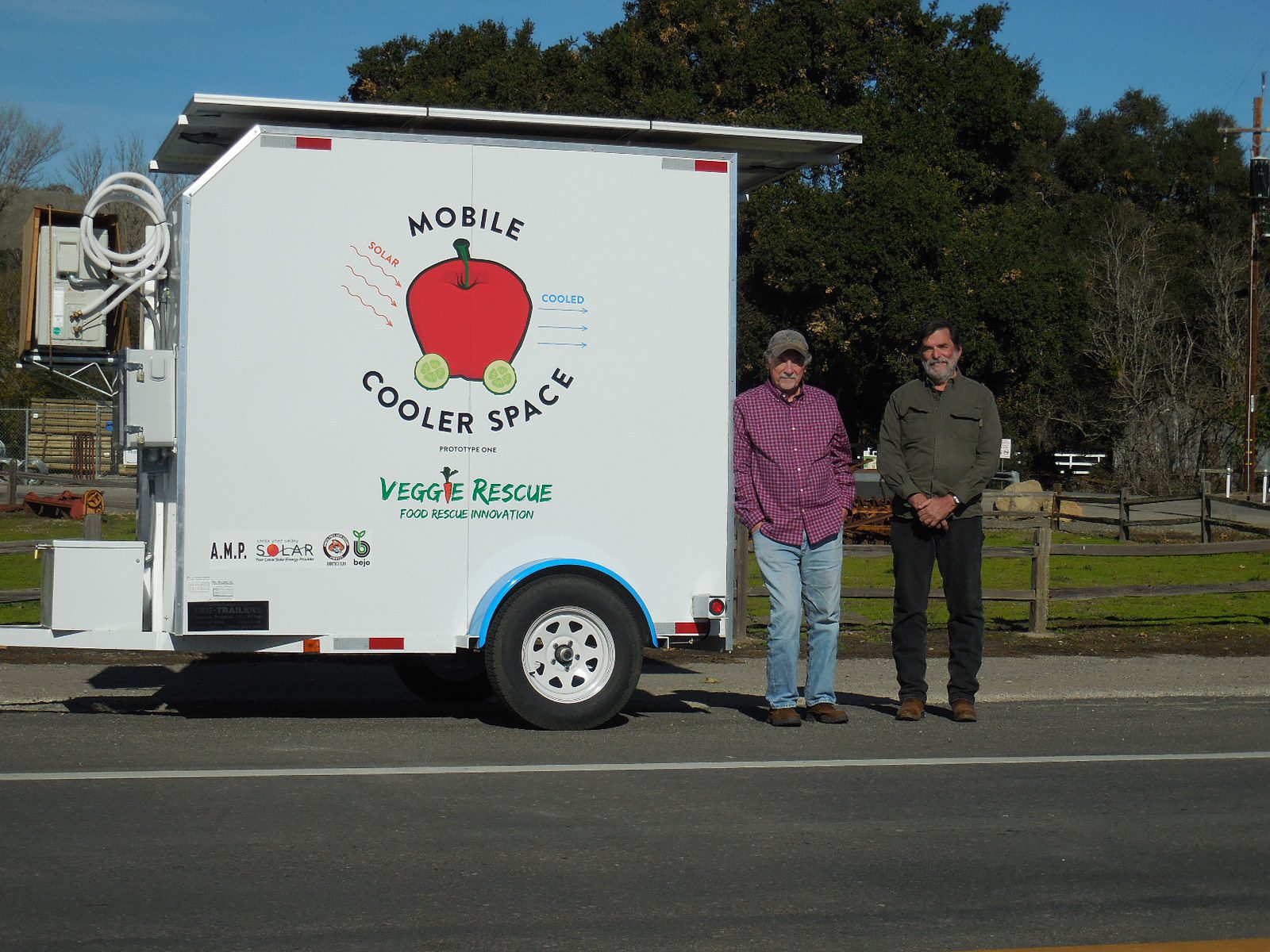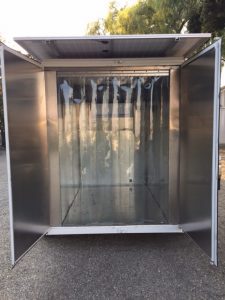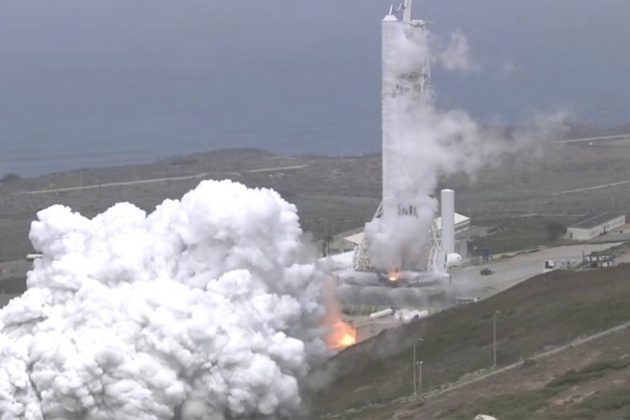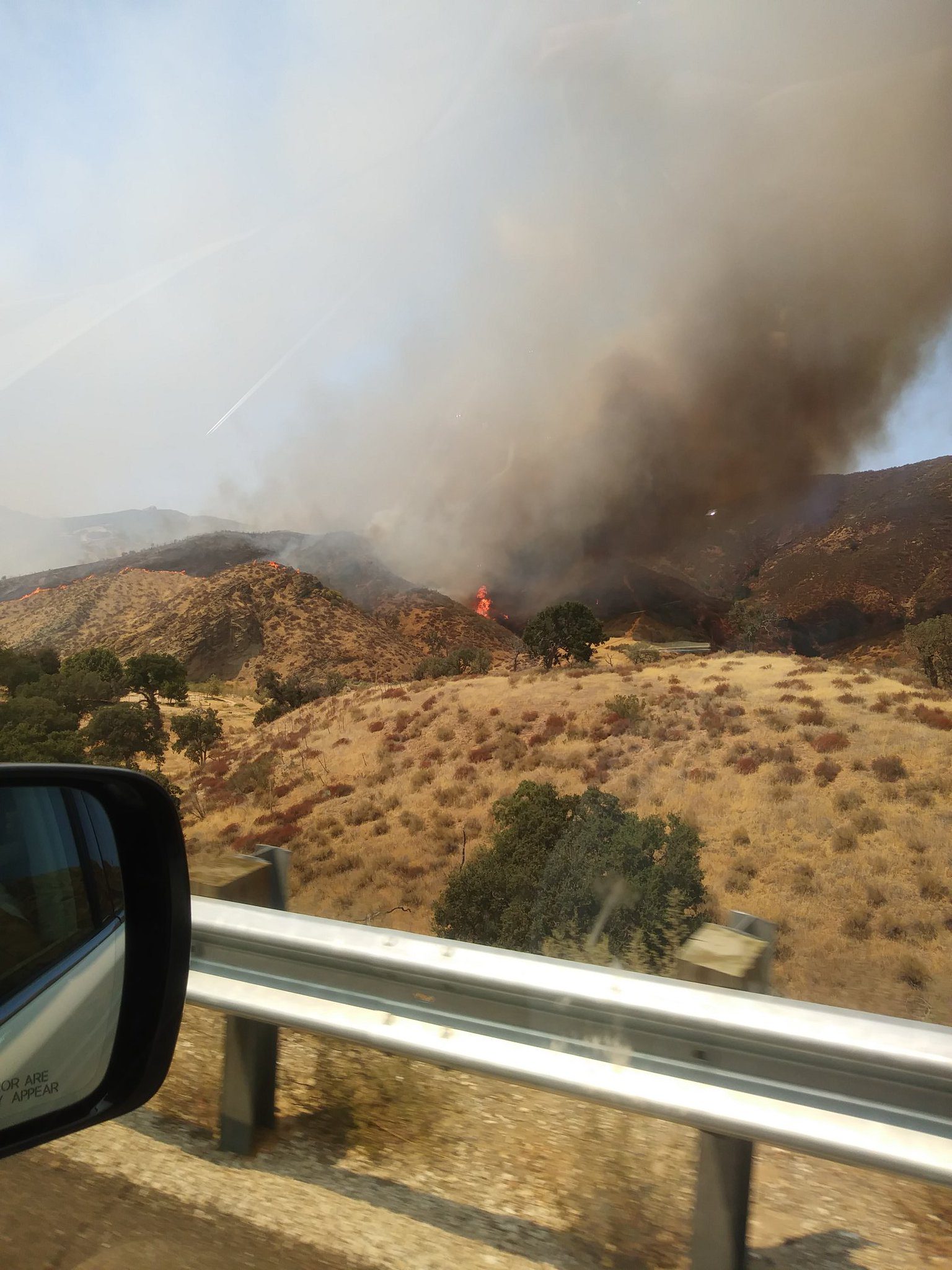By Pamela Dozois
The local nonprofit Veggie Rescue has a mission to reduce food insecurity and food waste in Santa Barbara County. Its small staff and army of volunteers collect excess produce from farms, farmers markets and backyards, and then distribute it within 24 hours directly to schools and organizations serving those in need, at no cost to the recipient.
The group can’t warehouse anything it collects, and over the past nine years it has collected more than a million pounds of fruits and vegetables along with prepared foods from Chumash Food Services, so the problem of how to handle all that bounty was not a small one.
With the rapid growth of the organization, Veggie Rescue’s founder, Terry Delaney, recognized the need for refrigeration to help preserve the quality of the food. Now, after applying a great deal of ingenuity, creativity, and imagination, the group has a solar-powered refrigerated trailer, the first of its kind, that was created by Gary Gordon, owner of Santa Ynez Valley Solar Company.
“I first discovered ‘Clinics in a Can,’ which refurbishes used containers and then turns them into solar-powered mobile clinics. That was my ‘Aha!’ moment,” said Delaney. “I thought we could use something like this to help our farmers preserve the quality of the food they have picked and ultimately put more food on the table for people in need.
“Food left outside waiting to be picked up loses some of its nutritional value and shelf life very quickly. I have been involved with perishables in the food industry for many years, so I know the importance of refrigeration. So I thought that creating a solar-powered refrigerated trailer would be a solution — something that’s mobile and uses green technology.”
“With that in mind, I called Gary Gordon, out of the blue, and asked him if he would consider talking with me about a project I was thinking about, and he said yes. I’m from the non-technology part of this project, and Gary not only has the technical skills needed but the ability to create the prototype, which we have built from scratch,” Delaney explained. “In the early stages we worked with the Santa Ynez Valley High School Robotics Team on conceptual ideas. These are a great group of kids and our future scientists and engineers.”
“Most refrigeration systems require a large amount of energy,” Gordon explained. “This unit is an air conditioning unit that has been tweaked to go to lower temperatures. I used a little magic to adapt it for use in the solar-powered mobile cooler. I worked on this project in my spare time, so cumulatively it probably took me a couple of months to complete.”
“It was really a fun and exciting project to work on because no one has done it before,” said Gordon. “There was a lot of experimentation required — there still is, really. I am a solar contractor and work primarily with solar arrays on houses. I have had a few projects in Africa installing solar water pumps for family farms and solar-powered lights in remote medical clinics. Projects like these are very rewarding because they change people’s lives. Solar energy is really amazing,” Gordon added.
“We were like two kids when we first turned on the mobile solar-powered cooler. We were so excited to see that it really worked. It made me think of the first time the Wright brothers took flight and how they must have felt, on a small scale of course, but no less exciting,” Delaney said.
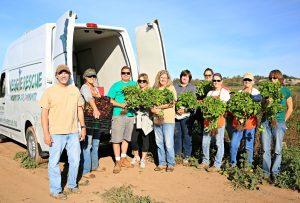
With the help of many volunteers, Veggie Rescue collects excess produce from local farms, farmers markets, and backyards and distributes it directly to schools and organizations serving those in need.
The project was funded by an anonymous local resident who donated $15,000 for the creation of the prototype. Bejo, a global seed company, also donated additional funds.
“This prototype solar-powered mobile cooler is 7 feet wide, 8 feet long, and 7 feet high and has been delivered to Midland School’s farm for field trials. It is our first step to see how it performs,” said Delaney.
“We still have a lot to learn about the … cooler that will be used at farm level, and there are more questions than answers at the moment,” said Gordon.
“Our first goal is to put as many of these coolers on local farms who donate to our program,” said Delaney. “Our farmers don’t waste food. They always have excess and the fact that they share it with us and not plow it under or use it as compost is a blessing to us. Without our farmers, Veggie Rescue would not exist. We are an extension of the farmer. We are a logistics model with a heart. We don’t grow it, or cook it; we move it to where it is needed,” said Delaney.
Delaney said that all the farmers he’s shown the cooler to have smiled broadly when they saw it. They loved the fact that the cooler is earth friendly and supports their efforts to help people in need with their excess food.
“This project has ‘legs’ and it could have a far-reaching benefit globally for farmers in developing countries in improving people’s lives physically, economically, and nutritionally,” Delaney said.
To see more photos or to contribute to the project, visit www.veggierescue.org, then click on the solar cooler or donation page.

